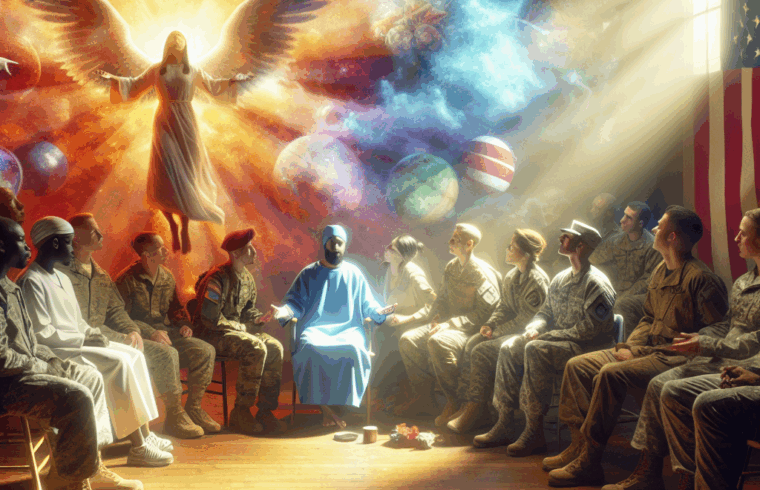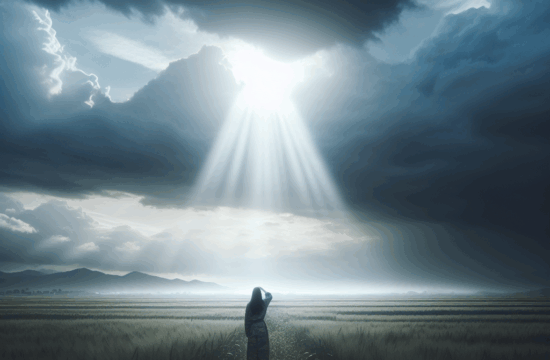==> Thank you for reading this post! Click Here If you are looking for support and Victory over PTSD.
Understanding the Effects of Trauma
What is Military Trauma?
When I think about military trauma, I can’t help but reflect on the countless stories I’ve heard over the years from veterans. It’s not just about physical wounds; it’s about the invisible scars too. Many have seen or experienced things that leave them emotionally and mentally shaken. It’s a unique kind of trauma that requires special attention.
This type of trauma can manifest in many ways—PTSD, anxiety, depression—it’s not a one-size-fits-all situation. I often tell people that understanding this trauma is the first step for anyone looking to help a veteran. It’s crucial to recognize their battles often continue long after the deployment ends.
Each person has their own journey with trauma, and by listening and learning about their experiences, we can foster greater empathy and support for their healing process. It’s about creating a space where they feel safe to share and heal.
The Impact of Unresolved Trauma
Unresolved trauma can be a real gamechanger. I’ve had conversations with friends who’ve struggled silently, and it breaks my heart. When these feelings get bottled up, they often lead to bigger issues—like substance abuse or self-isolation. It’s like the negative effects multiply over time.
The ripple effect of this unresolved trauma reaches families, friends, and communities. I’ve seen how it can strain relationships, making it tough for veterans to reconnect with loved ones. It’s essential for us to address these wounds, as healing can empower not just them, but everyone around them.
Some veterans may not even realize how much their trauma affects their day-to-day life, leading them to feel trapped in a cycle they can’t break free from. This is why awareness and education on this topic are so vital.
Recognizing Symptoms
Recognizing symptoms can be like piecing together a puzzle. Initially, I struggled to understand how diverse these symptoms could be. Some veterans may seem fine on the outside, while battling significant distress internally. Learning to spot signs of trauma, like sudden mood swings, withdrawal from social circles, or reliving past experiences, became a priority for me.
Moreover, the physical manifestations, such as insomnia or hyper-vigilance, are critical indicators. I encourage friends and family to familiarize themselves with these expressions of distress. The more we know, the better equipped we are to support those who need it.
In my experience, creating a safe environment for veterans to express these symptoms is key. It may require a simple conversation or a comforting presence—this acknowledgment can make all the difference.
Trusting in a Higher Power
The Role of Faith in Healing
Faith can be a powerful source of strength, especially when dealing with trauma. I’ve seen firsthand how returning to spiritual roots can spark profound healing. For many veterans, faith offers hope and a sense of purpose that can be hard to find elsewhere.
Connecting with a community of faith can also provide a much-needed support network. Sharing stories with others who’ve faced similar struggles can blend comfort with encouragement to move forward. It’s like realizing you’re never truly alone in this journey.
Every time I hear someone talk about their faith-based healing experience, it seems to radiate positivity. The belief in something greater can help them forge a path towards recovery, reminding them that they’re capable of overcoming adversity.
Finding Purpose Through Service
Underlining the importance of service has been a consistent theme in healing. I’ve talked to many veterans who, even after leaving active duty, find meaning in helping others. Volunteering or engaging in community work gives them a renewed sense of purpose.
This service-oriented mindset can transform their experience. It’s not just about doing good; it’s about recognizing their strength and resilience. This, in turn, promotes healing because they begin to shift focus from the pain to action.
When veterans get involved in transforming their communities, the impact is profound. They’re not just healing themselves; they’re also uplifting others along the way. I believe it nurtures a sense of belonging that can sometimes feel lost in the chaos of trauma.
Building Spiritual Resilience
Spiritual resilience is about grounding oneself amid chaos. To build this resilience, veterans can focus on mindfulness and meditation practices that enhance their connection to self and spirit. From my perspective, integrating these practices into daily life can significantly improve mental clarity and emotional stability.
It’s also vital to explore different spiritual avenues—whether through meditation, prayer, or nature. Discovering what resonates individually can guide their healing journey. I often encourage friends to experiment and find what peacefully connects them to their inner selves.
Additionally, seeking out professional guidance, like spiritual counseling, can help veterans tap into their spirituality more deeply and purposefully. This journey towards spiritual resilience is one I see as integral to the holistic approach to healing military minds.
The Importance of Community
Building Support Networks
You can’t underestimate the power of community. In my experience, surrounding oneself with supportive friends, family, and fellow veterans can provide the foundation for healing. This support network creates a space where individuals can express vulnerability without fear of judgment.
Getting involved in groups or organizations dedicated to veteran care can foster essential friendships. It’s incredible how many people are willing to lend a helping hand once you reach out. I’ve watched friendships blossom in these settings—turning strangers into a family, which can be an essential part of recovery.
Regular gatherings—whether organized or casual—create opportunities for sharing stories, resources, and encouragement. This bond also helps dispel the feelings of isolation that often accompany trauma.
Get Support and Help with Recovery! Visit us for more Information and Support
Encouraging Open Dialogue
Fostering a culture of open dialogue is vital. I often stress how important it is for veterans to express their thoughts and feelings openly. It’s not just about sharing war stories; it’s about discussing everything from struggles to triumphs and feelings of hopelessness to hope.
This open dialogue can facilitate understanding and reshape perceptions surrounding veteran experiences. The more voices that join in, the more the stigma dissolves, leading to greater acceptance. It’s about creating a safe space where vulnerability is met with compassion.
During my time with veterans, I’ve seen how getting together to talk out feelings—even just over a cup of coffee—can promote healing. Those conversations often turn into transformational moments that inspire others to seek support.
Creating Safe Spaces
Creating safe spaces means more than just physical locations; it’s about cultivating an atmosphere of trust and acceptance. In my view, anyone aiming to support veterans should work on establishing environments that prioritize mental well-being.
Support groups, therapy sessions, or even informal meetups should focus on non-judgment and active listening. Encourage veterans to disclose their experiences at their own pace. This process greatly helps in healing old wounds.
Whether through online forums or local community centers, the goal should always be about making everyone feel welcomed and understood. I’ve seen how these safe spaces can empower veterans to take necessary steps toward recovery.
Embracing Professional Help
Recognizing the Need for Therapy
Embracing therapy is a monumental step for many. Personally, I’ve always believed that seeking professional help should be normalized. There’s no weakness in standing up and asking for assistance; in fact, it shows tremendous courage.
Therapy offers tools to process feelings and work through trauma effectively. I’ve learned that almost everyone can benefit from someone outside their immediate circle, providing different perspectives and coping strategies.
For veterans, finding a therapist who understands their unique struggles is critical. That’s why I recommend looking for professionals who specialize in military-related trauma to ensure that the support is tailored appropriately.
Utilizing Support Groups
Support groups can be life-changing. I can’t emphasize enough how valuable it is for veterans to meet and connect with others who have been through similar experiences. Hearing shared stories can make people feel less alone.
These groups not only provide emotional support but also foster mutual understanding leading to shared growth and healing. The bond created through shared experiences can genuinely assist in the recovery journey.
From my perspective, anyone considering starting or joining a support group should prioritize finding a safe space where everyone can talk openly about their struggles and victories, no matter how small they seem.
Finding Holistic Approaches
Lastly, I find that exploring holistic approaches can lead to incredible breakthroughs. Techniques like art therapy, music, or yoga have gained traction for a good reason—they allow expression in various forms that words might not capture.
In my experience, discovering what resonates with an individual—be it art, nature, or movement—can ignite passion and help mend mental wounds. These holistic pathways often lead to newfound insights and coping methods.
By integrating these holistic approaches with traditional therapies, veterans can cultivate a rich tapestry of healing that supports the whole self, not just parts of it. It’s all about finding alignment on this journey toward wellness.
Frequently Asked Questions
1. What are some common symptoms of military trauma?
Some common symptoms include flashbacks, insomnia, irritability, mood swings, and withdrawal from social activities. It’s important to remember that these symptoms can vary widely between individuals.
2. How can faith contribute to healing?
Faith can offer hope, community, and a sense of purpose. Many find strength in spiritual practices that encourage mindfulness, gratitude, and connection with others, which can be profoundly healing.
3. Why is community important in the healing process?
Community forges connections, support networks, and a sense of belonging. It helps dissolve feelings of isolation and enables veterans to share their stories in a safe environment with empathetic listeners.
4. What role does professional help play?
Professional help can provide veterans with the tools needed to cope with trauma. Therapists trained in military-related issues can offer perspectives and techniques specifically tailored to assist in the healing journey.
5. Are there alternative healing methods for veterans?
Absolutely! Many veterans find success in holistic approaches like art therapy, yoga, and mindfulness practices. These methods can complement traditional therapies, allowing for a more comprehensive healing experience.













